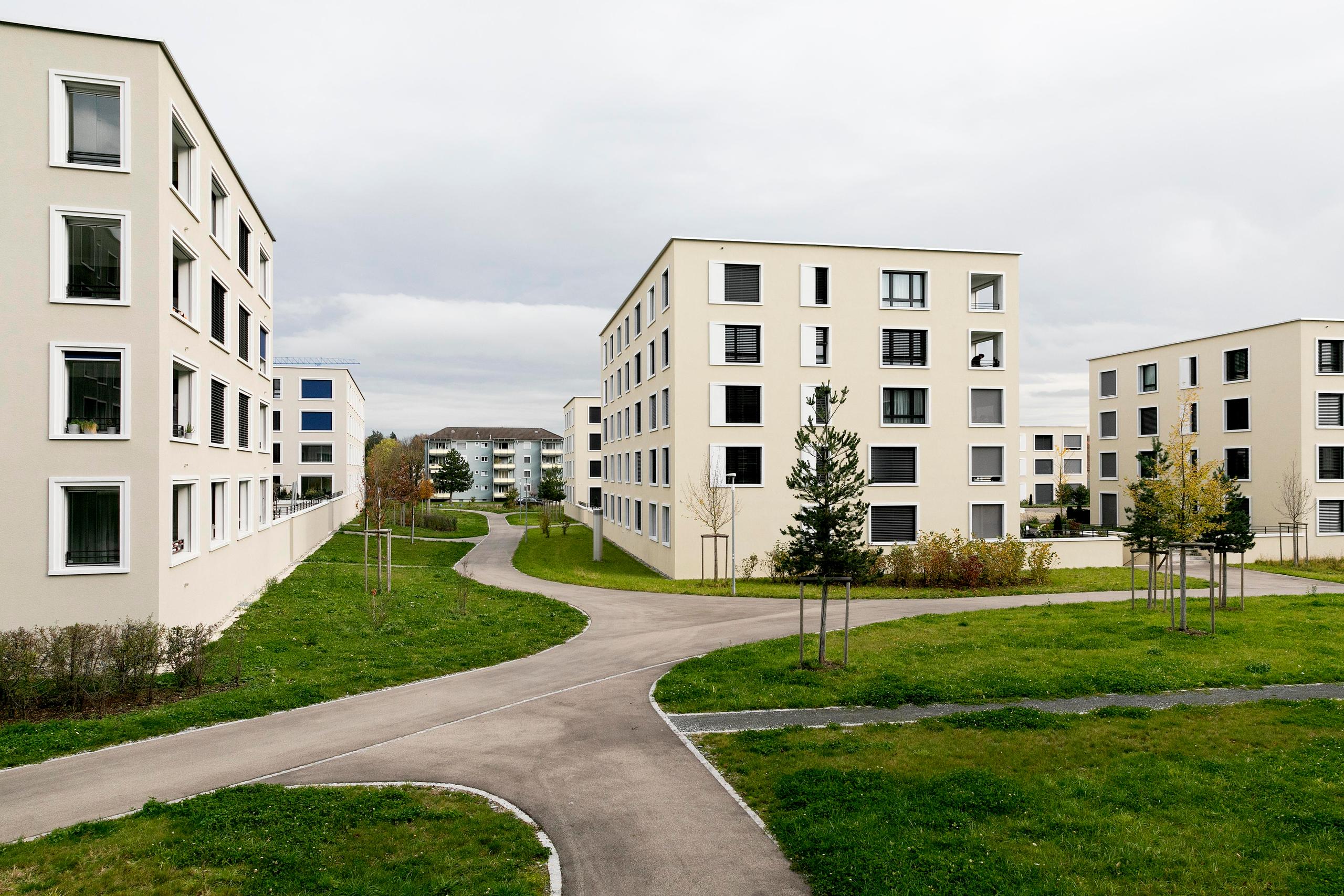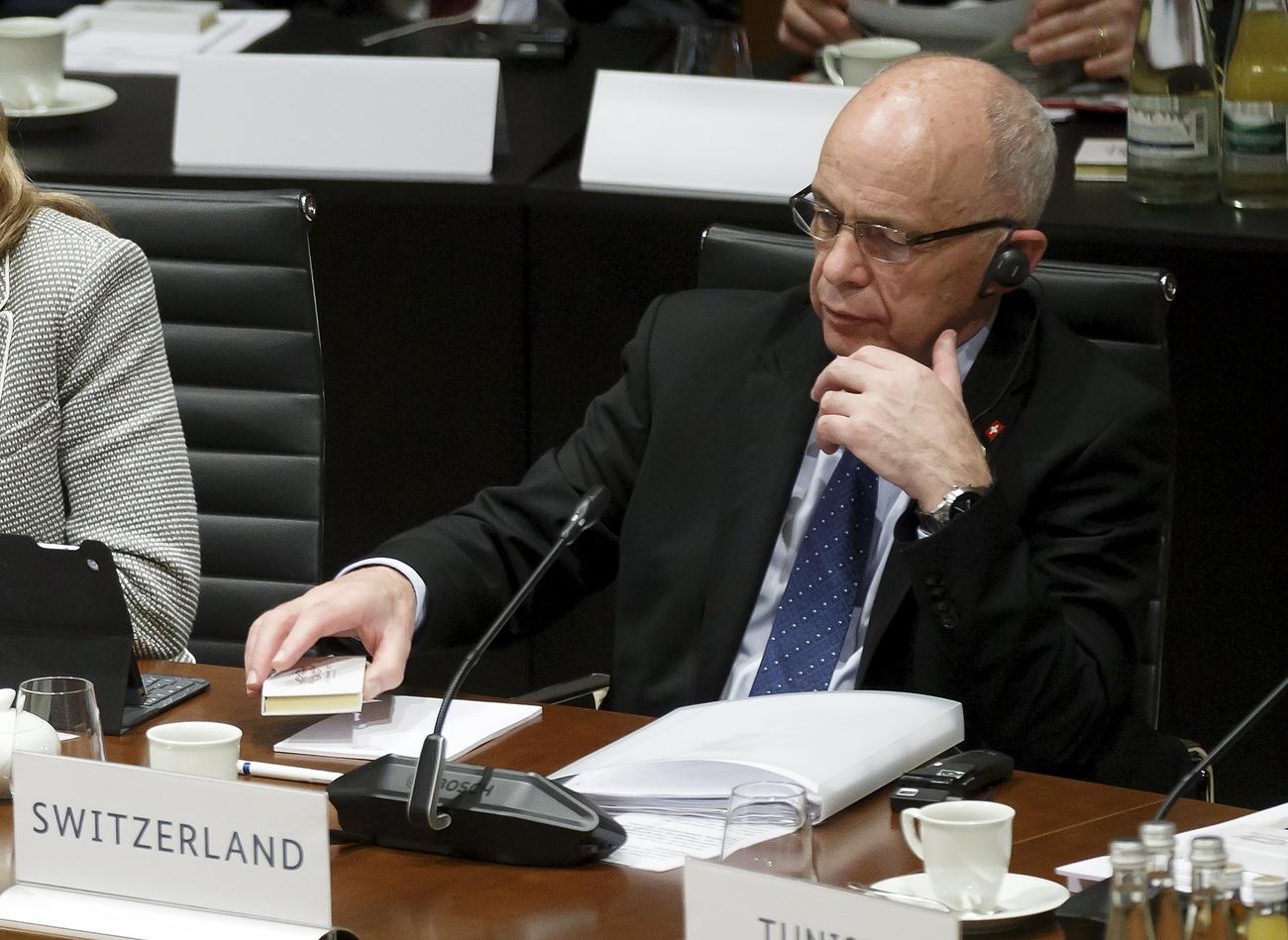Rich, stable Switzerland to face some moral dilemmas

Switzerland will continue to fare well in 2020: it will stay rich, unemployment will remain low and the risk of a economic crisis is next to zero. But so much wealth raises questions. Expect more debates on social responsibility and transparency.
This first part of our annual outlook scrutinises the economy. Part 2, to be published on Thursday, will focus on politics.
Despite a gloomy global economy, Switzerland should continue to perform well in 2020. Experts at the State Secretariat for Economic Affairs (SECO) expect “economic dynamics to be essentially identical to 2019”, with gross domestic product (GDP) estimated to grow by 1.7%. According to forecasts, the unemployment rate and inflation will remain extremely low, at 2.4% and 0.1% respectively.
The pharmaceutical industry will continue to live up to its role as the “engine of Swiss exports”. A mix of population growth, an ageing population and rising living standards is pushing global demand for advanced drugs and treatments made in Switzerland, making the industry immune to trade wars and geopolitical crises. Nearly every second franc Swiss companies make abroad is generated in the health sector.
Banking and a watch industry in turmoil
What applies to Roche, Novartis, Actelion and other pharmaceutical companies does not apply to other flagship sectors based in Switzerland. The watch industry will likely be affected by the unrest in Hong Kong, the biggest market for this branch. The increasing demand for smart watches, which affects companies in the entry-level segment of the watch industry in particular, is likely to further weaken exports.
After a long restructuring period following the 2008 financial crisis, the banking sector has regained some stability. This has mainly been achieved through measures to reduce risk positions and increase equity. Despite low interest rates, which narrow profit margins, Swiss bankers feel more confident about the future than before. This trend is set to continue in 2020.
For the federal government, negotiating a free trade agreement with the United States will remain a priority. Given Donald Trump’s unpredictable foreign policy and the China–US trade war, it’s difficult to predict how this will pan out. Swiss diplomats remain convinced that it is possible to start negotiations in the short term with a US administration that has been much friendlier towards Switzerland since Trump moved into the White House.
Switzerland has been invited to Saudi Arabia to attend the G20 Summit, which will take place in Riyadh in November, a first for the Alpine nation.
One subject that’s bound to be raised at the gathering is the proposal to charge multinationals taxes in the countries where they sell their goods and services, regardless of whether they have a physical presence there.
If greenlighted, the change would be a paradigm shift of historical significance, as it would mean that web giants like Google and Amazon could no longer avoid the taxman. The fiscal reform, envisaged by the Organisation for Economic Cooperation and Development (OECD), also foresees the introduction of a global minimum corporate tax rate to prevent companies from having their profits reported in tax havens.
Switzerland is among the countries fighting this major reform, as it could lead to a loss of some CHF5 billion ($5.2 billion) in yearly tax revenue.
The invitation to the G20 summit has been met with some scepticism: NGOs have denounced the Saudi regime for what they say is a public relations operation to gloss over the murder of journalist Jamal Khashoggi and persistent human rights violations.
Experts warn of a risk of the real estate market overheatingExternal link in Europe and Switzerland. Persistent low interest rates continue to drive investors to throw their money into the property market.
In Switzerland, housing developments in agglomerations and rural areas are particularly at risk. Due to the increasing pressure to invest, more houses have been built than are in demand, creating a high vacancy rate. One expert told swissinfo.ch that rural areas will soon suffer from structural vacancies (empty for three years or more), and although vacancies will remain very low in the cities, prices will go down.
The chance that the real estate bubble will burst is high. A change in monetary policy to raise interest rates, a global recession or a drop in immigration due to souring relations with the European Union linked to an end to the free movement of persons agreement – any of these could potentially become the trigger.
History shows that real estate crashes happen roughly every 20 years, with the last one in Switzerland occurring in the 1990s. Experts have warned about the bubble for years, which means the burst is long overdue and might just occur in 2020 – at least in the rural areas.
Swiss law stipulates External linkthat weapons cannot be exported to countries where armed conflict is ongoing. Nevertheless, Switzerland is investing in arms that are used for waging war. But that could soon change.
A people’s initiative to ban the financing of companies that produce war materiel wants to prohibit the Swiss National Bank, as well as state and occupational pension funds, from investing in companies that make more than 5% of their profits from conflict weapons. The authors of the initiative argue that the Swiss people are no longer willing to sacrifice their moral beliefs for these types of investment returns.
Although the authors were able to collect more than 130,000 signatures for the initiative, its future at the ballot box is uncertain. Businesses and the government alike recommend rejecting it,External link arguing that it would not lead to the desired goal, but would instead have a negative impact on the activities of the institutions in question. It would also weaken the Swiss financial sector and industry.
Switzerland is a champion of direct democracy. Yet in global democracy rankings, it often fares poorly because of a lack of transparency in political financing.
Of the 47 Council of Europe member states, Switzerland is the only one without a law regulating the financing of political parties. Rules on financing election campaigns and votes also remain non-existent and, despite repeated warnings, Switzerland has not implemented recommendations made by the Council’s anti-corruption body, GRECO.
But all that seems about to change. A people’s initiative on greater transparency in political financing will be put to a nationwide vote before the end of 2020. The proposal outlines precise rules for the financing of political parties and campaigns. It also aims to make it illegal to accept donations from anonymous sources.
Even if the initiative is rejected, Switzerland will still see some changes. Parliament has accepted the issue as an urgent one and is currently debating a counter-initiative.
Swiss voters will likely have their say on the responsible business initiative in autumn 2020. The text aims to oblige multinationals headquartered in Switzerland to do a due diligence review to ensure their activities respect human rights and environmental standards. This duty of care would also apply to Swiss-controlled subsidiaries abroa
The initiative also stipulates that a company that causes damage is to be held liable and must compensate victims. This means that under civil law, companies based in Switzerland would be liable for human rights violations or environmental damage that companies they control commit abroad.
But businesses, the government and parliament all say the initiative goes too far. For one, the Federal Council, the governing body, does not want Swiss companies to be liable for human rights violations and environmental damage caused by subsidiaries abroad. The two parliamentary chambers, however, have not been able to agree on a counter-proposal. So voters alone are likely to decide the fate of the multinationals.

In compliance with the JTI standards
More: SWI swissinfo.ch certified by the Journalism Trust Initiative
















You can find an overview of ongoing debates with our journalists here . Please join us!
If you want to start a conversation about a topic raised in this article or want to report factual errors, email us at english@swissinfo.ch.